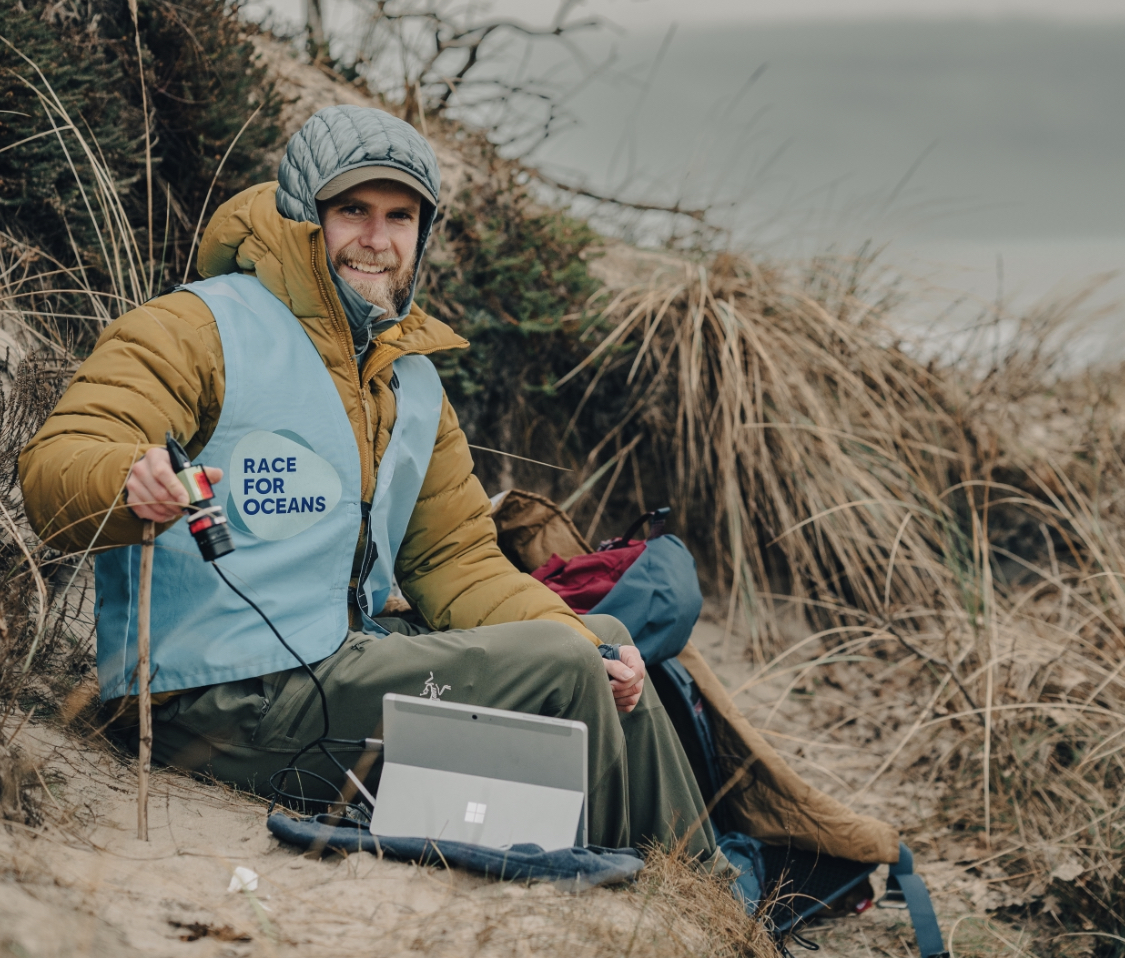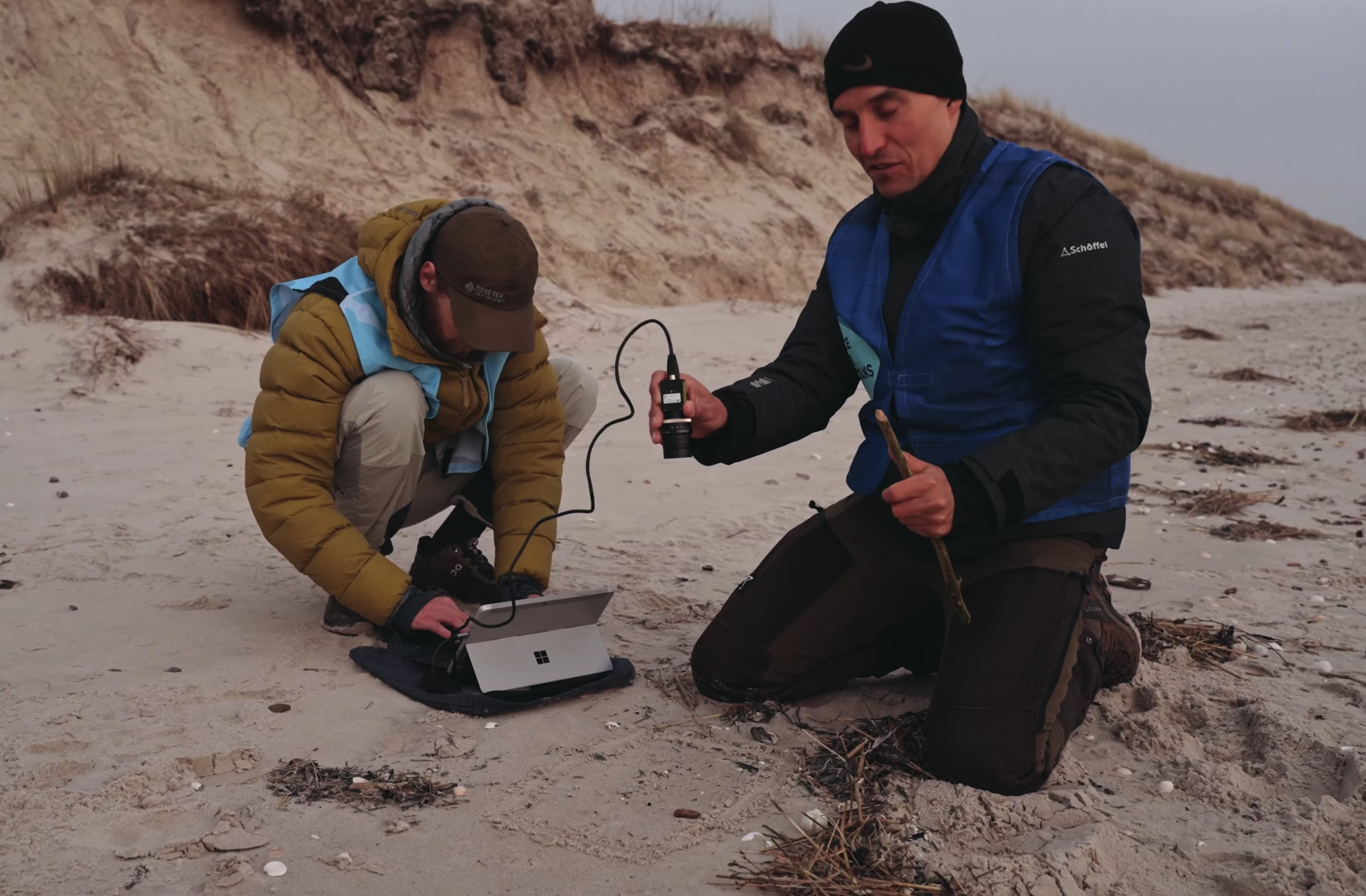A big step forward

Race for Oceans Technology
The ocean needs even more attention, love, and care. That's why Race for Oceans Technology ApS was established in 2023 with the purpose of developing software that will help us collect waste on land that we cannot pick up with our hands.
We are starting by focusing on the collection of plastic pellets!
Since 2019, we have found plastic pellets on the Danish west coast. When we also found plastic pellets in the harbors on the Danish east coast in 2022, the initial thoughts began on developing a technology project that should focus on collecting plastic pellets using AI, robot, and drone technology.
Developing the World's first AI beach rover prototype
In September 2023 we made a partnership with the Danish software company Trifork. The purpose of the collaboration was to develop the first AI Beach Rover Prototype in the World, which could detect and collect plastic pellets in an indoor environment.
A really exciting process started and three months later we were able to successfully test the rover's steering properties on the beach at Esbjerg. We then established an indoor sandbox, and in March 2024 the rover collected the first plastic pellets via AI. It was a great moment to see our idea come to life and the prototype was shown to the public for the first time in June 2024.
Our vision is that in the future we can collect all waste on land that we cannot collect by hand. The next phase begins in October 2024 and is about developing an AI model for drones so that we can map the hotspots and in that way create a comprehensive solution that disturbs biodiversity as little as possible.


Synergy between technologies creates impact
Race for Oceans and the Danish Tech company Trifork are joining forces to develop a robot that, with the help of AI, can remove plastic pellets from the beaches. This is a problem that unfortunately has been identified worldwide. The plan is for the first robots to start cleaning the beaches by 2024.
"The work of removing plastic pellets from the beaches is both physically and mentally exhausting, so there is a need to think differently if we are to address the problem. Over the past year, we have collected video and image material of more than 15,000 pictures of the plastic pellets we have found. This data can now be used to develop the technology that teaches the robot what to clean," says Signe Simonsen, CEO Race for Oceans.
"Plastic pellets are a global challenge that will, over time, destroy nature both on the beaches and in the ocean. For some, it may seem like an insurmountable task, but we approach it with confidence because we know that technology is one of the primary drivers for creating a more sustainable world and preventing challenges like these", said Founder and CEO Jørn Larsen.
Field Trip 2023
In February 2023, the new technology project was launched with a field trip along the Danish west coast of Jutland. The purpose of this trip was to collect raw data in the form of video and image material of plastic pellets with different cameras, as well as physical collection by hand.
The route was 450 km from Rømø to Skagen and there were 40 stops along the way, where plastic pellets were found in 38 places. In total, +15,000 photos were taken, and 5,174 plastic pellets were collected.
As a result, we now have a valid data set that we can further develop and create the software with computer vision technology that eventually can be integrated into robots for collection on the beaches.
As part of the field trip we collaborated with The Alexandra Institute and Aalborg University, and the project was supported by the EMD Foundation.

Support Race for Oceans Technology
Are you a company, then you can support Race for Oceans Technology´s journey with a sponsorship here:
Contact: signe@raceforoceans.org
Sparekassen Kronjylland
Reg.nr.:9331
Kontonummer: 0020462728
IBAN-kontonummer: DK1593310020462728
BIC-kode: KRONDK22
Race for Oceans Techonology
Søndergade 30
9480 Løkken
CVR: 43933760
An insight into Field Trip

What is
plastic pellets?
We often hear about plastics and microplastics in nature. Plastic pellets are a part of this and are a big, global problem in our oceans.
Plastic pellets are the raw material used to create any given plastic product and therefore come in all sorts of colors. The European Commission estimated in 2023 that in the EU alone, there is an annual unintended spillage in nature of between 52.000 - 184.000 tonnes.
The waste happens during transportation by land or water but also during the production of plastic pellets and other plastic products. They are produced in the size of 5 mm diameter and are therefore categorized as microplastics.
During our activities, we see plastic pellets being washed ashore on both the Danish east and west coasts, and we experience that less than 2% of our participants know what plastic pellets are. Therefore, the big plastic pellets hunt in the summer of 2023 was an information campaign to the general population about the challenge.
Due to the size and the waste quantity, no manual effort will succeed in the collection of plastic pellets in nature - that is why plastic pellets become our first case for waste collection on land using technology.
Partners

